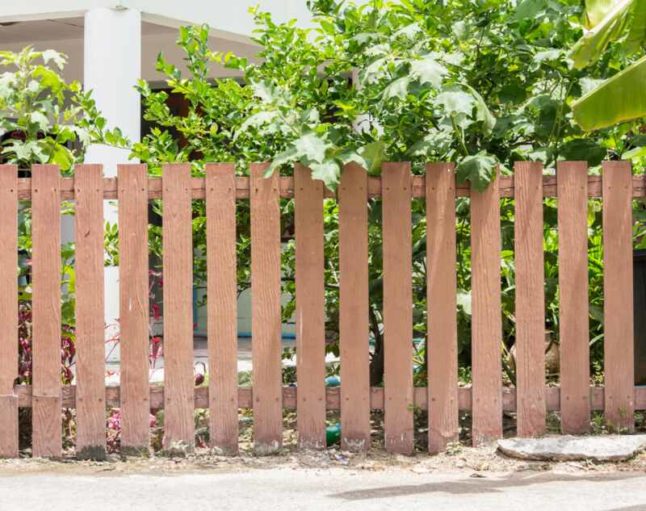All Categories
Featured

When mounting a fence, picking the best material is vital to stabilizing performance, aesthetic appeals, and spending plan. Wood, vinyl, and aluminum are amongst the most frequently selected fencing products, each with its strengths and drawbacks. This guide discovers the pros and cons of these choices to assist you make an educated decision.

Wood Fence. Pros:. Natural Charm: Wood's classic appeal can improve any type of residential property with its cozy and classic appearance. Adjustable: You can paint, discolor, or sculpt timber to fit your design preferences. Inexpensive: Timber secure fencing is originally extra economical compared to some various other materials. Eco-friendly: As a renewable energy, timber is naturally degradable and typically thought about eco-friendly. Disadvantages:. Maintenance-Intensive: Regular securing, paint, or staining is called for to stop damage from weather condition and bugs. Prone to Degeneration: Without proper care, wood can rot, warp, or split with time. Much shorter Life-span: Generally, timber fences last 10-15 years, depending upon the sort of timber and upkeep. Timber is a terrific option for those that value visual appeals and are willing to buy regular maintenance to maintain its appearance and resilience.
Vinyl Fence. Pros:. Reduced Maintenance: Plastic requires minimal treatment-- simply occasional cleaning with soap and water. Weather Resistant: It doesn't warp, rot, or catch insect damages, making it extremely durable in different climates. Longevity: Plastic fencings can last 20-30 years with little to no repair work. Layout Range: Available in a wide variety of shades, appearances, and styles, including wood-like appearances. Disadvantages:. Greater Initial Cost: Plastic fences are a lot more pricey in advance contrasted to wood. Susceptability to Cold: In extremely winter, plastic can end up being susceptible and fragile to breaking. Restricted Repair Work Options: Matching substitute panels can be testing if damage takes place. Vinyl fencing is ideal for homeowners trying to find a durable, low-maintenance remedy that offers contemporary versatility.

Aluminum Secure Fencing. Pros:. Rust-Proof: Light weight aluminum stands up to rust, making it an outstanding choice for humid or damp environments. Long lasting: Regardless of being light-weight, aluminum is strong and can stand up to extreme weather. Reduced Upkeep: It calls for marginal maintenance, normally just occasional cleansing. Long Life expectancy: Light weight aluminum fences can last decades without significant wear and tear. Sophisticated Layout: Often utilized for decorative purposes, aluminum secure fencing includes a smooth, innovative look to residential properties. Disadvantages:. High First Financial investment: Aluminum fences are amongst the pricier options on the marketplace. Much less Personal privacy: The open layouts common with light weight aluminum secure fencing do not offer much privacy. Susceptible to Damage: While long lasting, aluminum can dent if struck with sufficient force. Aluminum is an exceptional selection for homeowners focusing on aesthetics and resilience without needing much upkeep.
Making Your Choice. When making a decision between wood, light weight aluminum, or plastic fencing, consider your priorities:
Wood suits those that appreciate a natural appearance and do not mind placing in maintenance initiative. Plastic is the ideal option for those looking for a low-maintenance, weather-resistant service. Aluminum uses streamlined design and durable sturdiness but might lack personal privacy. By very carefully examining these materials' attributes, you can pick a fencing that enhances your residential property while satisfying your practical and visual needs.
Latest Posts
Practical Rug Take Care Of Lasting Appeal
Published Apr 21, 25
1 min read
Exactly How We Make Floor Covering Easy at Carpet Interiors Floor & Home
Published Apr 21, 25
1 min read
Quick Car Repair Solutions - Schedule with Montclare Auto Repair Now
Published Apr 21, 25
2 min read